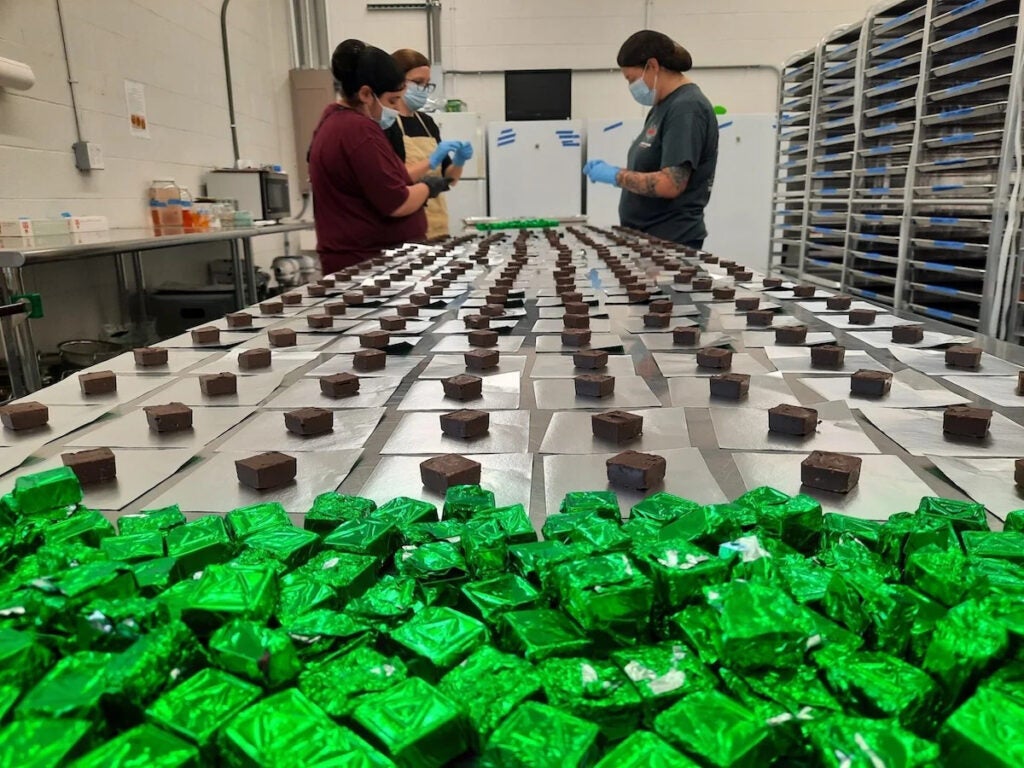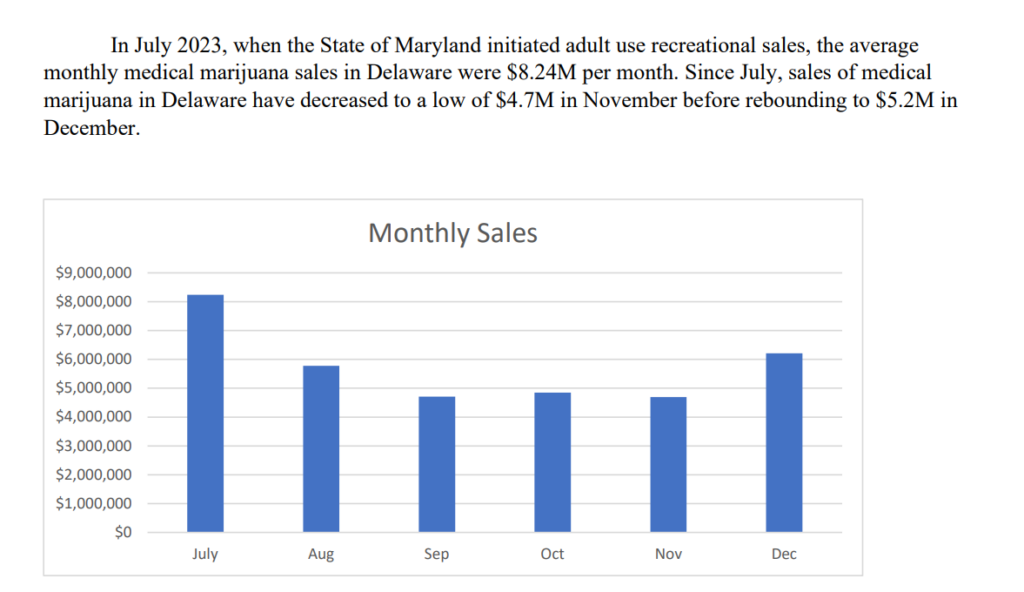From Philly and the Pa. suburbs to South Jersey and Delaware, what would you like WHYY News to cover? Let us know!
For the last 15 months, Bill Rohrer has been itching to start growing marijuana to fuel Delaware’s coming recreational market.
Rohrer is a partner in The Farm, a medical cannabis business with two cultivation sites, a facility that makes edibles and other products and retail stores in Felton and New Castle.
But when lawmakers legalized weed in April 2023, they didn’t follow the lead of New Jersey, Maryland and some other states in allowing medical businesses to kick off recreational sales.
“It feeds the illicit market is what it does,’’ Rohrer told WHYY News a year ago as legal users had to continue engaging in illegal activity — buying weed from in-state dealers or transporting it across state lines from legit stores in nearby states.
That’s about to change.
A bill that lawmakers passed in June and Gov. John Carney is expected to sign in the coming weeks lets Delaware’s six medical weed licensees apply for so-called conversion licenses to grow, manufacture, test and sell retail cannabis.
Those licenses will be issued starting in November, allowing Rohrer to start growing weed that he can sell at The Farm’s retail stores, perhaps as early as April 2025, and to others who receive retail licenses.
Without that bill’s passage, said Marijuana Commissioner Rob Coupe, the start of retail sales would have been delayed until sometime in 2026. Applicants who receive the new cultivation licenses will take up to a year longer to get their operations going, and then to grow crops for retail sale, he said.

Delaware’s new course “creates a much faster pathway to get the adult-use market operational … to make marijuana legally available for the average citizen to buy,’’ Coupe told WHYY News.
Beyond accelerating what Coupe acknowledges has been a slow, laborious process in creating regulations and a licensing process, allowing conversion licenses could pump up to $4.2 million into a new fund to help so-called social equity applicants, who are slated to receive 47 of the 125 licenses. The $4.2 million would come from application fees for conversion licenses.

Lawmakers also allocated an additional $2 million into the fund for aspiring social equity cannabis entrepreneurs. To qualify, they must own at least 51% of the business and meet one of these criteria:
- Been convicted of a marijuana-related offense, as long as it wasn’t for selling more than 11 pounds or dealing to a minor
- Had or has a parent, legal guardian, child, spouse or dependent who was convicted of a marijuana crime
- Lived for at least five of the last 10 years in a “disproportionately impacted area.” In essence, that’s a defined census area where marijuana arrests have been high in the last decade. Applicants can see if their address qualifies on the state’s website
The conversion licenses that Roher and other medical licensees sought permission to seek won’t come cheaply.
The cultivation licenses cost $200,000 apiece. To get one for manufacturing, testing or retail, the cost is $100,000.
Rohrer said he appreciates that lawmakers accepted the rationale of the medical licensees this year, and plans to spend up to $800,000 for conversion licenses: two for cultivation, one for manufacturing, two for the existing retail stores, and perhaps one for a new store in Sussex County.
But he says it won’t be an easy proposition in a retail market that faces stiff competition from border states. Medical weed sales in Delaware dropped significantly last year when Maryland opened its retail stores.

“We find ourselves in somewhat of a perplexing situation,” Rohrer said. “We’re excited about the growth, but it’s a very daunting expansion and need for capital investment. So that’s kind of the dilemma that we’re in.”


Be the first to comment